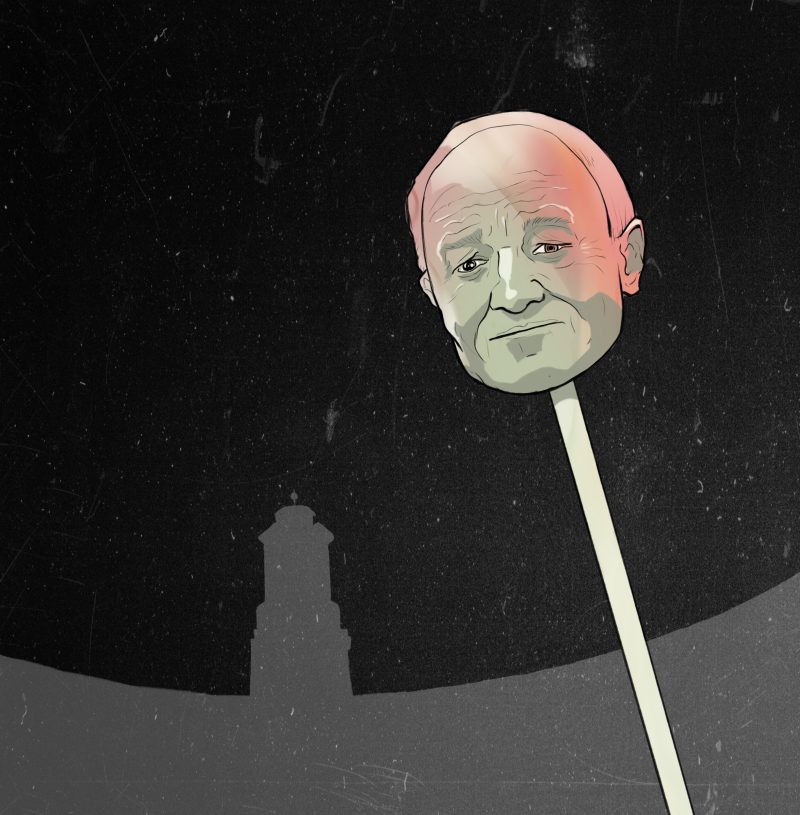“The sciences, each straining in its own direction, have hitherto harmed us little; but some day the piecing together of dissociated knowledge will open up such terrifying vistas of reality, and of our frightful position therein, that we shall either go mad from the revelation or flee from the deadly light into the peace and safety of a new dark age.”
—HP Lovecraft
Historically, trying to predict the future has produced questionable results. Take a look at any number of ‘retro futures’, described by science, literature or a succession of sci-fi films… Most are laughable, but since the internet and the growth spurt of related technology something’s changed.
“Everything is becoming science fiction. From the margins of an almost invisible literature has sprung the intact reality of the 20th century” wrote J.G. Ballard.
Drone warfare, sex robots, algorithmic surveillance, election-interfering Russian bots…
Almost overnight, a sci-fi future has begun to infiltrate our daily mundanity. We no longer need predictions we just need to our open eyes, but what we see has antecedents in places we may not want to scrutinise too closely…
Ultra-violence
Anthony Burgess’ ‘A Clockwork Orange’ stands out as an oddity in the realm of futuristic visions. It’s set in a time not far distant, a dislocated, disempowered society, that doesn’t venture out after dark. We’re not given too many clues as to the actual structure of this society but gangs roam the streets taking pleasure in ultra-violence.
The book put a deadly spin on the birth pangs of teenage revolt. The anti-hero, Alex and his gang of droogs indulge themselves in drink, drugs and a variety of psychopathologies later set to music by Stanley Kubrick.
Written in 1962 as a meditation on casual violence Burgess documents the maturation of youth culture in tandem with State violence. But there two sides to this argument and two endings to this story…
[Spoiler alert]
In Burgess’ original text published in Europe, the anti-hero, Alex, eventually reformed himself. It was’t a result of state action, via the insidious conditioning process, he simply grew up, became an adult, started thinking about… babies. Aged 21 in the 21st chapter, the symbolism is perfect for the age of enlightenment, modernity’s ‘happy ending’.
As a critique of capitalist culture it makes its point, but there’s another point being made that parallels, more closely, our current situation.
The American edition, forced on Burgess by the Stateside publisher avoids this ‘wimping out’. It removes the final chapter. In this alternative ending Alex overcomes his conditioning and emerges to fight another day.
More adventures in ultra violence beckon. Ripe for a sequel, you could cynically argue that it’s the American way, freedom is the thing, even if it’s the freedom to rape and pillage.
transgression
Alex and his droogs are ‘sexy’. They have their own slang, their own style and the certainty of fully energised, self-immersed youth.
It’s seductive, transgressive. It’s the ‘rebel without a cause’ on bad drugs.
Pandora’s Box
In her book Kill All Normies, Angela Nagle documents the ongoing ‘culture wars’ raging across the internet and the rise of a largely right wing and nihilistic meme culture.
They have style, acerbic wit, transgressive panache, and numbers. They mob together, they bully, intimidate and ‘dox’ their victims with zero apparent remorse. How far this leads offline and into the real world is open to debate but Nagle has documented actual cases of murder later celebrated by these newly evolving droogs. This is an ‘outsider’ culture that would have been invisible and unknown without the internet.
The fringe is suddenly in our faces and anyone who thinks that ‘ultra violence’ is something restricted to teens has never stood in a baying football crowd of 30 to 50-somethings screaming blue murder at their opposition and fully prepared to follow through.
Historically, in the west, cultural rebellions are eventually neutered. The punk uniform shows up in the shopping mall and ‘rebellion’ is sold back to the masses. This time it’s not going to plan.
The transgression is not being commodified.
Meme tropes of self-aware ugliness are retaining their ugliness and multiplying.
Shattering the progress myth
Contrary to popular belief, I’d suggest the web was never a continuation of ‘enlightened thinking’ — the age of reason that gifted us logic, tolerance and fraternity — it was the technical stage in the break with that tradition. As we began looking into dark places, the future noticed us. It turned and began rushing to meet us.
Written in 1962, A Clockwork Orange witnesses the birth of the teenage outsider and pre-dates some of the worst excesses of gang culture. There’s a prescience at work, a warning of things to come.
Burgess’ ‘enlightened’ conclusion ties in with the notion of progress. A post-war Europe was at last beginning to prosper. Progress in the shape of modern consumerism arrived from America and we all gave thanks…
Capitalism was sent to liberate us… but it evolved, globalised. It wired us up, got into our heads and showed as an abyss.
So where are we now?
For the first time in our history we’re able to witness our collective nakedness. It’s not always pretty but to simply look away and invoke moral superiority is no longer useful.
I’d argue that ‘ugliness’, as a transgressive moment of self awareness doesn’t have to manifest negatively. It can also be a part of creative self-discovery.
This is the time in our history when we most need our eyes wide open. Alex was forced to witness his own ugliness in order to cure him of his ugliness. Two wrongs don’t make a right, we are everything that’s bad but everything that’s good too.
These waters are choppy but we can’t unsee now, there’s no turning back.
Whatever next step we take it’ll be with a greater knowledge, not necessarily of who are, but of what we might be capable.




